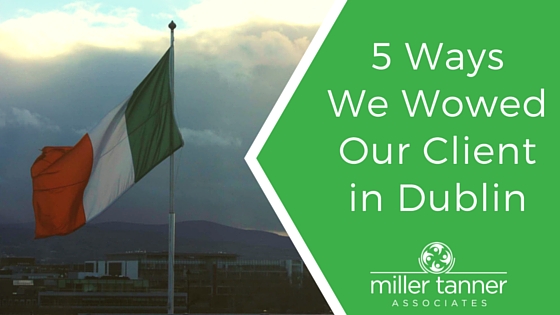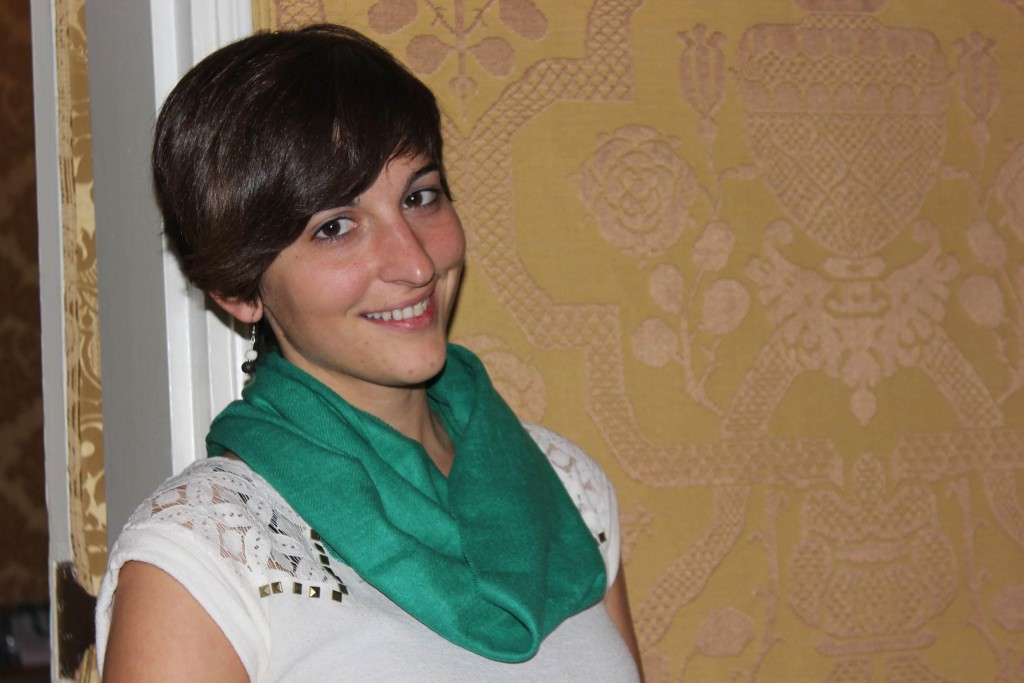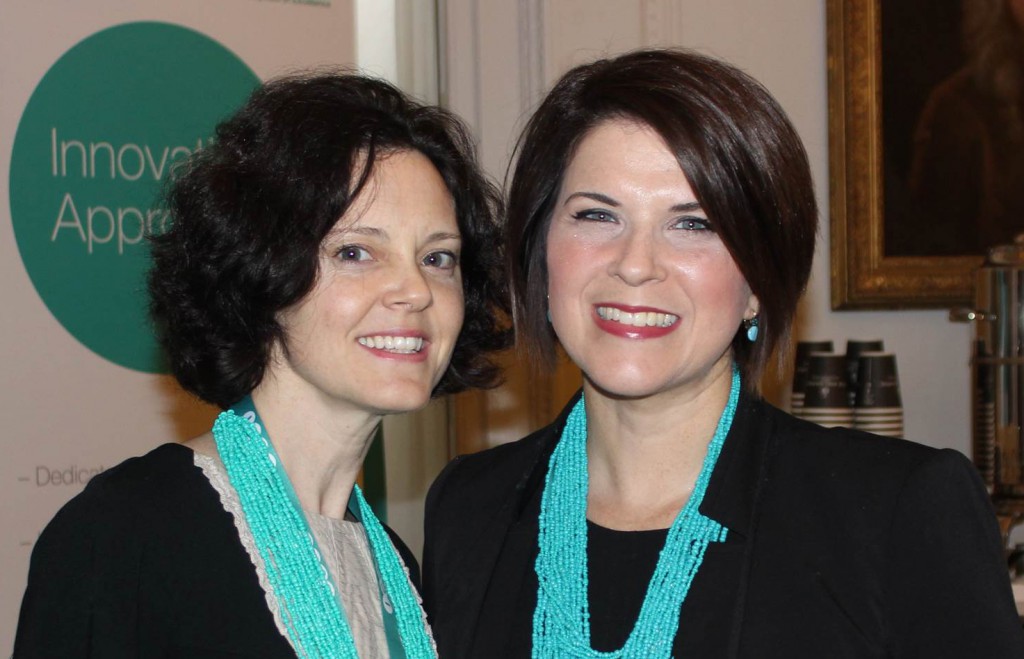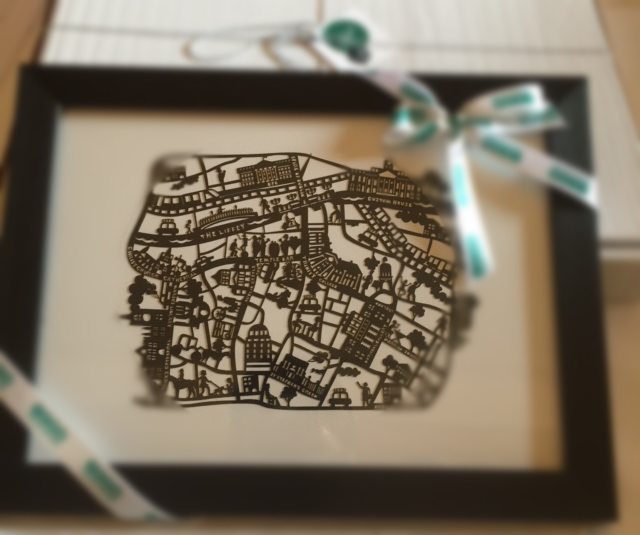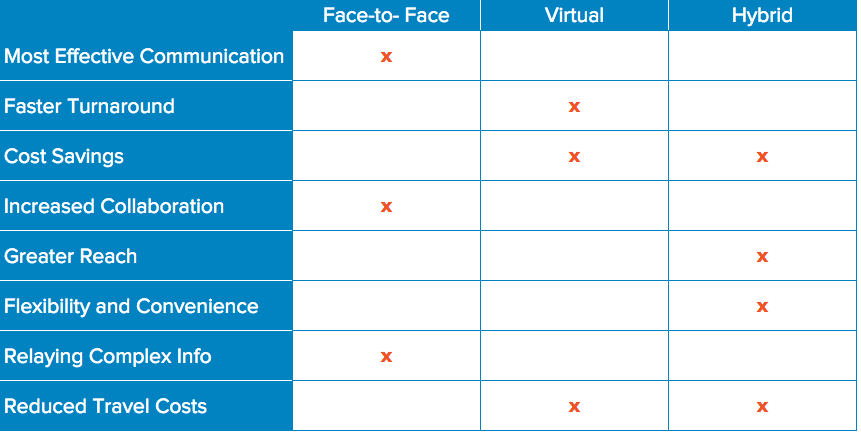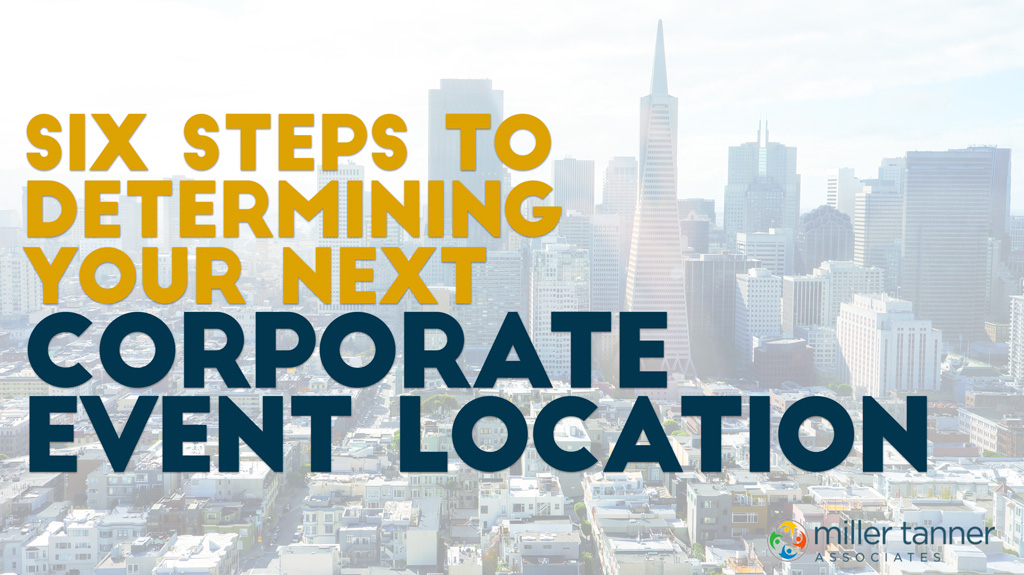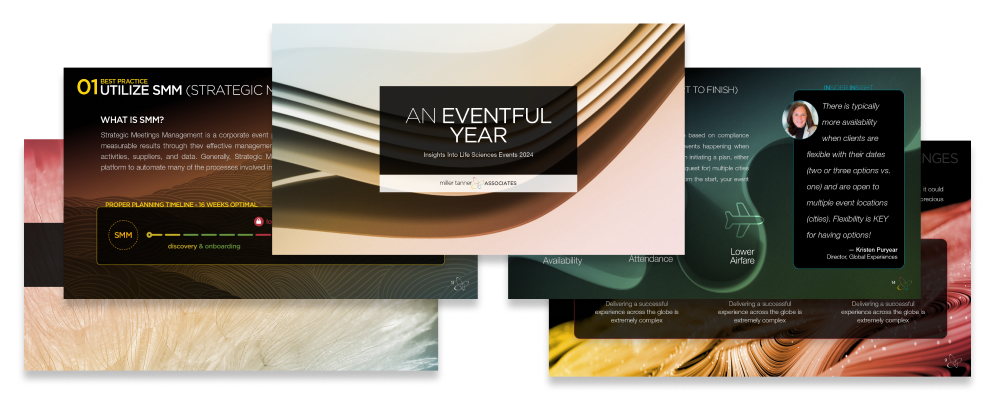At Miller Tanner, we love creating unique and memorable events for our clients.
For us, there’s no better feeling than planning and executing a meeting experience that gets attendees excited, makes our clients smile, and keeps people talking for months (or even years).
A great example of an event like that was a leadership conference we recently planned for a client in Dublin, Ireland.
Energizing Attendees and Celebrating The Client’s Heritage
Our client is headquartered in Dublin with thousands of employees all over the world.
The opportunity to gather the organization’s top leaders together for a conference in the company’s home city was quite a special occasion that needed to be recognized.
Through the conference, the client wanted to explore and emphasize what set them apart from the competition, celebrate their Irish heritage, and get everyone energized for the year ahead.
How We Created a Truly Memorable Conference Experience in Dublin
Here are five ways our team’s attention to detail and focus on exceptional customer service helped the client achieve their conference goals:
1. Meticulous planning.
Miller Tanner was involved from the beginning of the planning process and once we became aware of the client’s specific goals for the conference, we made sure to find ways to incorporate them into all aspects of the program.
We helped our client sculpt the content of the agenda to make sure they were highlighting what makes the company stand out and how they could be a difference-maker for their customers in the coming year.
We also knew that celebrating their Irish heritage was important, so we wanted to bring that into the program in any tasteful way we could.
A few ways we were able to highlight their heritage was through custom gifts, a unique Dublin tour, and even the appearance of our staff members (more on each of those below).
The client also helped set MTA up for success by selecting The Shelbourne Hotel, which is an absolutely amazing venue. It’s one of Dublin’s oldest and most famous hotels with a long and storied Irish history.
Not only is the actual property beautiful with old charm, but the staff are also first class and were always going above and beyond to help us with our event.
2. The arrival experience.
At Miller Tanner, we always try to go the extra mile to make sure the program is flawless and the guest experience is memorable.
There was some bad weather in Dublin on arrival day and it required some flights to reroute to Shannon Airport. We always track all flights to make sure we know when our guests are on time or delayed.
This time we knew that after flying overseas from the States and landing in a different airport than planned, it was probably not going to be a good experience for the guest.
We were able to be proactive and get shuttles to Shannon Airport to pick up all of our guests and get them to Dublin comfortably with snacks in hand.
You can’t always prevent problems like this one, but this time we were able to make the guest experience more enjoyable.
3. Staff appearance.
As a team, we wanted to make sure to stand out to attendees in case they needed our assistance.
Because we are not keen on staff uniforms, we are always trying to come up with a creative and elegant solution to stand out.
This time, our team decided to wear green scarves and green necklaces throughout the conference to have a touch of green when welcoming guests to Ireland.
The fact that the “green” also happened to be the client’s brand color was not exactly a coincidence either!
4. Nightly “room drops”
As mentioned above, we created custom gifts to bring in the client’s Irish heritage and welcome all the leaders to Dublin. These gifts were dropped in attendees’ rooms each night as a surprise.
The first night was a “Taste of Ireland” gift left in the attendee’s room while they were at the welcome reception.
This gift included famous Dublin chocolates, renowned Dublin soaps and of course, a mini bottle of Irish whisky – all packaged together in a customized box with a ribbon.
The second evening’s gift was a combination of scarves and hats for the attendees to wear the following day during the surprise activity around the city.
The final gift was our favorite – it was an artisan gift made by a local Irish artist—a framed, cut-out map of Dublin. Each map was handmade for our attendees with beautiful detail.
All the gifts were a big hit and provided that extra touch at the end of each night. One attendee even joked: “Going back to my room is like Christmas morning to see what gift will be waiting for me!”
5. The pub crawl.
The cultural pub crawl was unique because we created it specifically for our group. The group was a mix of Irish attendees and people from all over the world, so we needed to come up with an idea that wasn’t your usual tour.
We were able to customize an experience that was fun for all to enjoy.
This tour involved traditional Irish music, tasting some of Dublin’s delicacies, exploring some Irish history, all while sipping on drinks at a few of the famous pubs around the city.
All told, this event—and the conference as a whole—was a smashing success.
We received rave reviews in person and after the meeting. Most importantly, we already started discussing details for next year!
